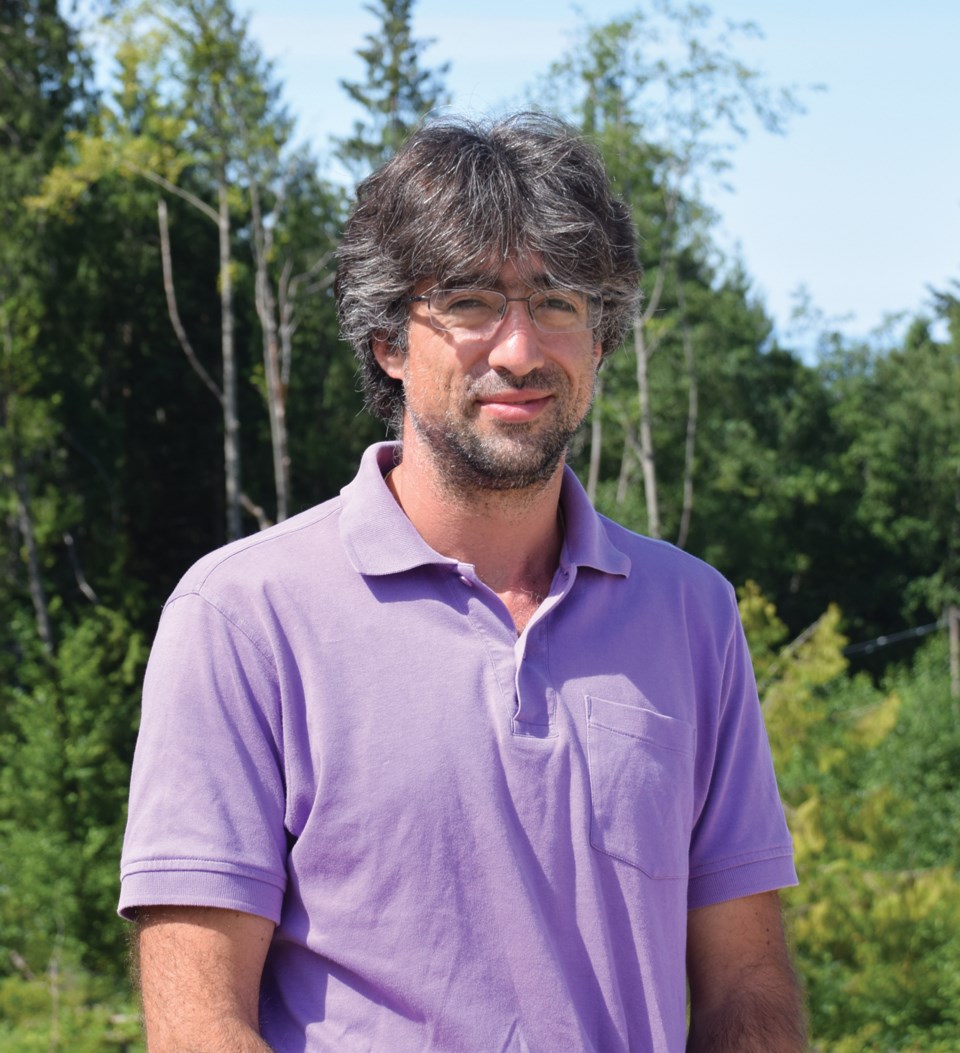As the Sunshine Coast Regional District (SCRD) looks to how it will approach a legal cannabis production industry on the Sunshine Coast, at least one cannabis advocate wants to see the local government do more to engage local stakeholders.
“I understand the SCRD’s concerns when it comes to the commercial industry, things like water use, things like impact on the environment. However, there’s no way to work that out if you don’t engage with stakeholders and experts,” longtime cannabis advocate Joel Podersky told Coast Reporter.
The board passed a motion in July for staff to research how other regional districts are developing guidelines for a legal cannabis industry, including recommendations on how to manage non-soil-bound facilities. They also supported a request for a moratorium on non-soil-bound cannabis greenhouses on the Agricultural Land Reserve.
In the spring, local governments participated in an information session with B.C.-based Pasha Brands, which bills itself as “North America’s largest craft cannabis brand house.” At that meeting, the company urged local governments to make it easier for smaller growers to enter the legal industry, telling officials the industry on the Coast is worth at least $200 million, a number Podersky also confirmed.
But there are many local organic and craft stakeholders that feel Pasha does not represent their approach to the industry, according to Podersky, who said the SCRD should be engaging in formal consultation with a range of experts on the Sunshine Coast.
“I’d love to sit down and help them figure it out point by point and I’m willing to take my time to do that and offer contacts of other experts in this realm as well,” said Podersky, who is also working to establish a co-op for small growers to facilitate their entry into the legal recreational cannabis market.
Podersky’s efforts to work with the SCRD have not yet led to anything meaningful, he said. “I have demonstrated my credentials, offered to facilitate for them,” said Podersky, who is a co-founder of the Cascadia Agricultural Cooperative Association and co-founder of the Craft Cannabis Association of B.C.
SCRD chair Lori Pratt acknowledged that “there has not been a formal approach” outside of the request for staff to look at other jurisdictions, but that engagement is on her radar. “Of course we will be engaging local stakeholders and have been speaking with residents and business owners as questions and concerns regarding cannabis arise, but we don’t have anything formally set up at this time,” Pratt said. “I’ll be bringing it forward when we reconvene in September.”
There are an estimated 600 local craft cannabis growers on the Sunshine Coast, which produce for clients with medical cannabis certificates and for what’s known as the “grey market,” according to a 2016 study prepared for the Gibsons Chamber of Commerce.
In the run up to legalization, the SCRD took a “closed door” approach, and adopted a bylaw that banned commercial and recreational cannabis production and retail facilities in residential and rural zones, and chose to forgo a public hearing, in part to ensure the ban be put in place prior to the Oct. 17 legalization date.
Currently, staff are working on a revised zoning bylaw, which could create revised rules around where cannabis is grown. The current zoning bylaw permits commercial production facilities in some rural, agricultural and industrial zones.
Some local governments have been looking local, however. Podersky said he has been approached by Silas White, who was hired by the Town of Gibsons as an engagement consultant to reach out to the cannabis industry to collect opinions about growing and retail needs.
“It is on the Town’s work plan to zone for retail sales and production; however, the first step is to engage the industry and find out what works/what doesn’t work before beginning a zoning process,” said Lesley-Anne Staats, director of planning for the Town.
–With files from Sean Eckford



